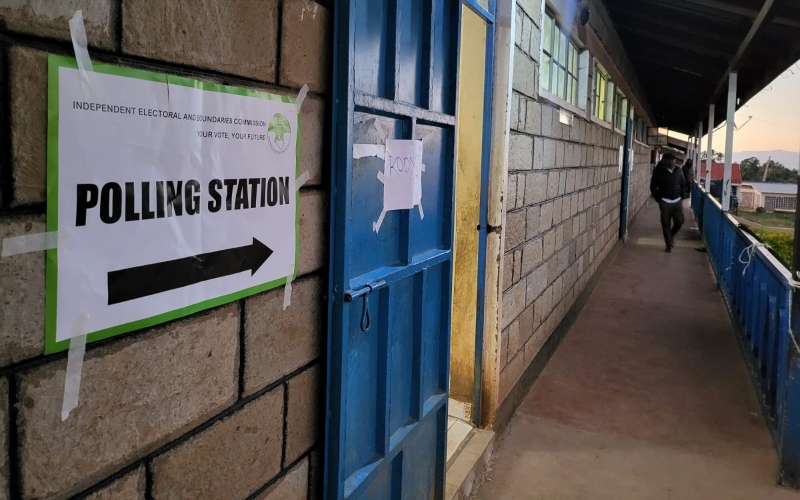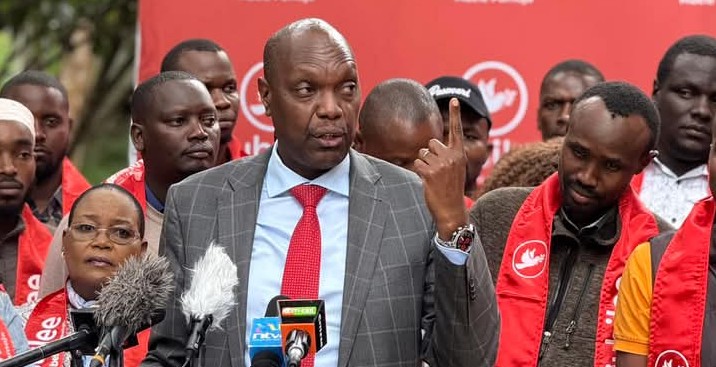IGAD ministers renew regional pact on refugees as Kenya demands fair burden‑sharing

The ministers expressed deep concern over the deteriorating humanitarian situation, singling out the conflict in Sudan, which has generated unprecedented internal and cross‑border displacement.
The Intergovernmental Authority on Development (IGAD) has renewed its regional commitment to supporting refugees and displaced communities, issuing a new communiqué in Nairobi highlighting the region's solidarity and the growing pressure on countries hosting millions of people forced to flee their homes.
Ministers responsible for refugee and internal affairs from Djibouti, Ethiopia, Somalia, South Sudan, Uganda and Kenya met on Thursday under the IGAD Support Platform for a ministerial stock‑taking of progress on the Nairobi Declaration on Durable Solutions for Somali Refugees and related regional commitments.
More To Read
- Kenya’s refugee population hits 860,000 as State pushes integration plan
- IGAD rallies region to tackle deepening displacement crisis amid funding cuts, conflict
- Daua Dam, irrigation masterplan gain momentum after high-level talks in Nairobi
- IGAD leads new push for Peace in Sudan as regional and global partners back three-step plan
- ONLF accuses Ethiopia of breaching 2018 peace deal as Somali Region tensions rise
- Ethiopia hosting COP32 a ‘win for the Horn of Africa’, IGAD says
The meeting, chaired by Djibouti and hosted by Kenya, also brought together IGAD Executive Secretary Dr Workneh Gebeyehu, representatives of the European Union, the World Bank, UN agencies, civil society organisations, refugee‑led groups and the private sector.
In their joint communiqué, the ministers reaffirmed the centrality of the 2017 Nairobi Declaration and its subsequent thematic declarations adopted in Djibouti, Kampala and Mombasa, as well as the 2023 IGAD–EAC Declaration on Durable Solutions for Refugees in the East and Horn of Africa.
They described the agreed declarations as the backbone of a regional framework for protection, inclusion and sustainable solutions for refugees, returnees, internally displaced and stateless persons, and host communities.
Similarly, they commended the progress made by IGAD member states in strengthening legal, policy and institutional frameworks that extend access to education, health, social protection, employment, civil registration and digital identification for displaced populations and their hosts.
"(We) acknowledge the continued support by international partners and the increased involvement of humanitarian and development actors, private sector, as well as civil society in the provision of services to refugees, returnees, IDPs and host communities as provided by the Global Compact on Refugees (GCR)," the communiqué reads.
Further, the ministers expressed deep concern over the deteriorating humanitarian situation, singling out the conflict in Sudan, which has generated unprecedented internal and cross‑border displacement.
"(We) Express solidarity with the people of Sudan and Call for humanitarian access, immediate ceasefire and the peaceful resolution to the conflict," they said.
The ministers also endorsed enhanced inclusion of refugees and other displaced groups within national systems and pledged to create enabling conditions in countries of origin to support safe return and reintegration, including access to basic services, social protection and documentation.
Recognising the growing impact of climate change on displacement trends, the ministers urged the inclusion of displacement‑affected communities in national climate plans and policies, and called for increased, accessible climate finance for host countries struggling with environmental degradation and climate‑related shocks.
They also tasked the IGAD Secretariat with mapping ongoing and planned humanitarian and development investments targeting forcibly displaced and stateless persons and host communities, in order to assess the scale and trends of financing available to deliver on the Global Refugee Forum pledges and the Nairobi Process commitments.
IGAD was also mandated to convene regular strategic meetings of the Support Platform to keep partners abreast of changing regional dynamics and emerging challenges.
In his opening statement, Gebeyehu pointed out that with 122 million people displaced worldwide the global displaced population would form the tenth largest country in the world.
"Displacement at this scale is not a temporary condition. It is a reflection of structural pressures that demand long‑term vision rather than short‑term reaction. This is a challenge that no country, no region, no matter how generous or well‑meaning it is, can handle alone," Workneh said.
He also traced the region's policy evolution since 2017, arguing that the Nairobi Declaration and its subsequent thematic action plans had driven a decisive shift toward durable, development‑oriented approaches to displacement.
Workneh similarly highlighted the two regional pledges made in 2023, which focus on comprehensive solutions and climate action, as proof that IGAD is determined to match political commitments with measurable reforms and evidence‑based policies.
As the region prepares for the Global Refugee Forum 2025 Progress Review, Workneh urged ministers to concentrate on sustained political leadership, stronger regional coordination, enhanced and diversified partnerships and multi‑year investments in education, livelihoods, basic services and climate resilience.
"A region that manages displacement effectively is a region that strengthens its stability, enhances its resilience, and deepens its integration," he said, calling for decisions in Nairobi that will shape IGAD's contribution to Africa's aspirations for peace and prosperity,' he said.
Speaking as the representative of the host nation, Interior Cabinet Secretary (CS) Kipchumba Murkomen urged the international community to step up support for countries hosting refugees, warning that declining funding threatens progress in the region.
According to the Interior CS, global displacement has reached unprecedented levels, with around six million displaced persons currently in the IGAD region.
"Funding cuts to refugee operations have reached levels never seen before, leaving host countries in an increasingly precarious position and threatening the progress made in previous years," Murkomen said.
"The speed and scale of forced displacement are outpacing the solutions available, leaving many displaced populations in a prolonged state of limbo."
He added that Kenya's experience hosting refugees for over three decades, with more than 860,000 currently under its care, provides lessons for the region. Murkomen cited the Shirika Plan for Refugees and Host Communities, launched in March 2025, which aims to promote socio-economic empowerment, self-reliance and the transformation of refugee camps into integrated settlements.
"Central to this agenda is the principle of cooperation and equitable burden- and responsibility-sharing. Progressive policies and initiatives such as the Shirika Plan are at risk if the burden continues to fall disproportionately on host countries," said Murkomen.
Top Stories Today














































